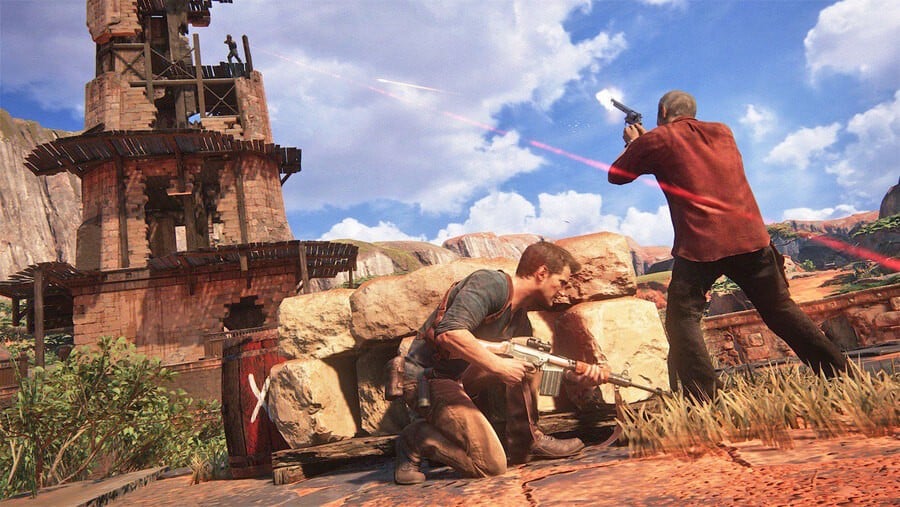
I'm on chapter 20 of Uncharted 4: A Thief's End, having just escaped explosive deathtraps with a good companion by my side. We're ready to take on the bad guys that have taken another friend hostage, and I happen to see him attempting to escape from my vantage point. I'm overlooking a vast cove run dry with marooned pirate ships, and once I drop down the cliffs into this ancient graveyard, I'm sure I'll find plenty of mercenaries to shoot, punch, and blow my way past on Nathan Drake's most arduous adventure yet.
Arduous is a fitting description, because after a dozen attempts to get past the first wave, I'm reminded for the umpteenth time why I've been dreading most of the game's combat encounters. It's an emotion I never expected to have toward any Naughty Dog title, but here I am, nearly throwing my controller several times throughout the most unforgiving campaign with one of my favourite PlayStation properties.
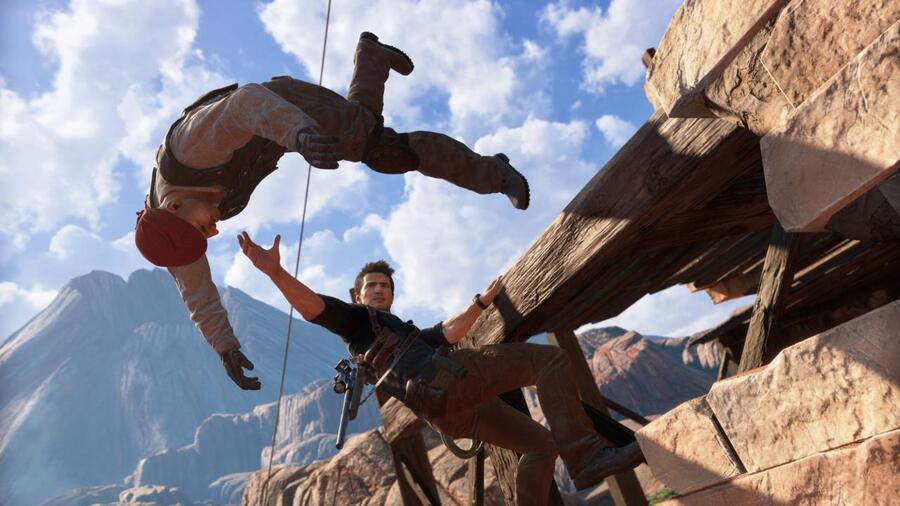
Oh, don't misunderstand me - it's still a phenomenal game. One of the first things I noticed while playing is how the gunplay has received an exceptional do-over, which makes the previous games feel clunky by comparison. Getting up close and personal can result in exciting, seamless brawls that spread across the shootouts like butter, and don't get me started on how thrilling it is to use the grappling hook to traverse the battlefields, which are all perfectly laid out and vertically designed to bring about varied fights that play out like beloved action movie scenes.
There's no doubt that the mechanics and level design of the series have only improved with time. The conclusion to Nathan and Sam's scenic visit to Scotland? The jeep escape followed by Nathan's literal car-hopping joyride? These are but a couple of moments that showcase the franchise at its highest gameplay peak, but conflicting design in the title when playing on higher difficulties not only spoiled half of my experience, but also taught me to reevaluate my entire approach to video game difficulty settings.
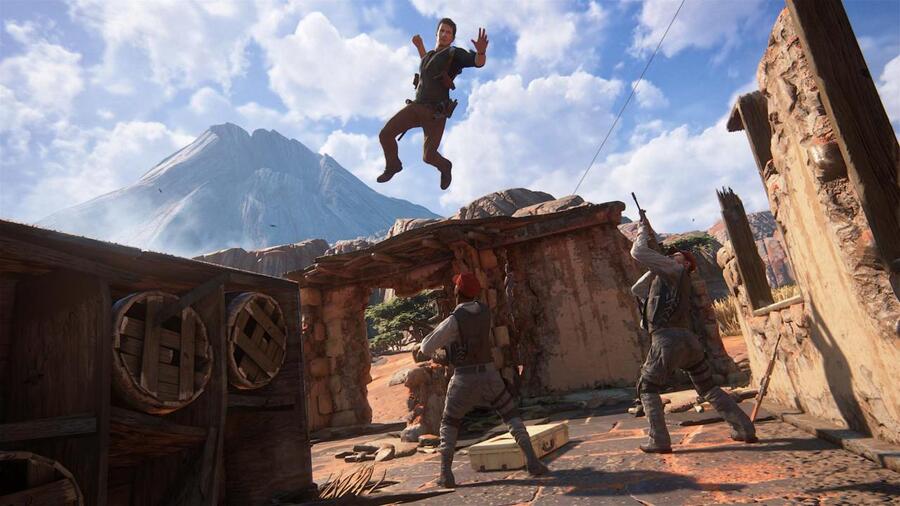
It's key to acknowledge that Uncharted 4 is surprisingly different from its predecessors. Throughout most levels of past titles, you expected numerous combat sequences across contained, linear areas with platforming to mix things up. The fourth game opts for more platforming and stealth to spread the action, which takes place in locales that invite varied approaches with their semi-open nature. Some encounters force you to go in guns blazing, but more than half of them incorporate stealth as an option. Being sneaky is a viable alternative with tall grass to hide in and more responsive cover movement, and figuring out how to tiptoe your way past an enemy encampment or eliminating grunts one by one can be fun. However, problems arise when dual gameplay approaches like this have one option that's favoured, when ideally, both options should be equally enticing and balanced.
After the first few hours of playing on Hard, I noticed that stealth is easier if it's available. Whenever I was caught or decided to take the fight to the enemy, I was severely punished by the unexpectedly aggressive AI, so I just reloaded my checkpoints and tried again. I didn't want to engage in stealth on occasion since there are long periods between staged shootouts, but I felt forced to do it out of necessity rather than strategic preference, which became a chore that I loathed. Whenever I came across an area that I knew would be a blast to let bullets fly in, I was forced to check myself before I wrecked myself.
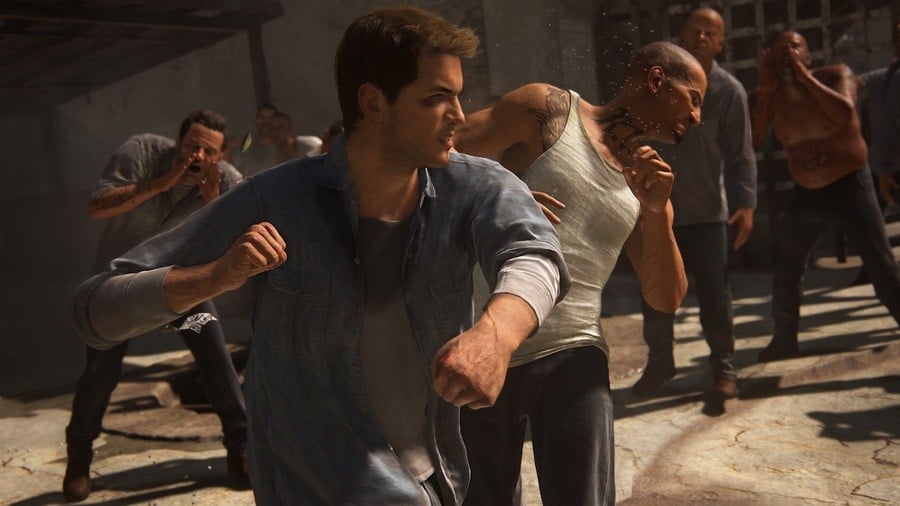
It's as if the game communicates that "combat is bad" on this difficulty setting, and this is further exacerbated since stealth is basic and one-note compared to the unexpected twists and improvisation this title's action brings to the front with melee fights, the grappling hook, and more. After all, this design bias goes against half of the fun the Uncharted series is known for as an action-adventure shooter. Because of this, I made myself wait for forced fights after long periods of platforming and self-imposed, egged stealth - and it's the latter that made my disappoint grow as the chapters flied by.
The ending fight for chapter 10 is a prime example, which is suffocating with its small interior and droves of enemies. It makes combat an absolute nightmare as you scramble for cover, since you're largely unable to engage in amazing fistfights along with Sam and Sully or swing across the chandelier to drop on an enemy, pick up his gun, and fire away. You'll be immediately gunned down if you try. This dramatic, cinematic brilliance I've pictured can be realised at lower difficulties, but stripping it away on higher ones by forcing you to stay behind cover and potshot foes haphazardly negatively changes how you play, which is not the kind of "hard" I had imagined.
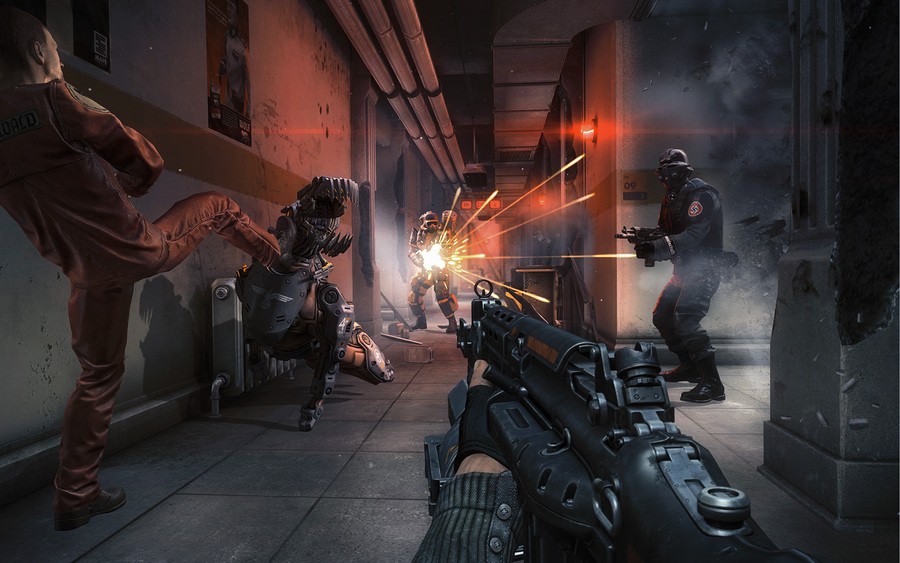
I'm not necessarily finding fault with Uncharted 4 in itself - I just walked away from it knowing I could've had a far better experience by doing one simple thing: lowering the difficulty! This would've given me the middle ground where I can enjoy and act upon all the game has to offer while receiving an adequate challenge. However, I've always been stubborn about changing difficulties mid-game because I like to stay committed for the sense of accomplishment. Altering it for convenience feels dirty, and since I've played the second and third games on Hard, you can imagine why I was conflicted about making the switch. I did rough my way through the tough bouts and have earned the bragging rights, but at what cost?
I'll always play franchises like Call of Duty and Resident Evil on hard difficulties, and that goes for most games in their genres in general. However, the difference between them and Uncharted 4 is a matter of restriction. With the former examples, I have every ability and mechanic at reasonable disposals, which means that the fun I have is only limited by my own skills. Wolfenstein: The New Order gets this with sections where you can choose to lay low with your throwing knife and silenced pistol, but can make a mistake and go in gung-ho without feeling anxious, even with more severe settings.
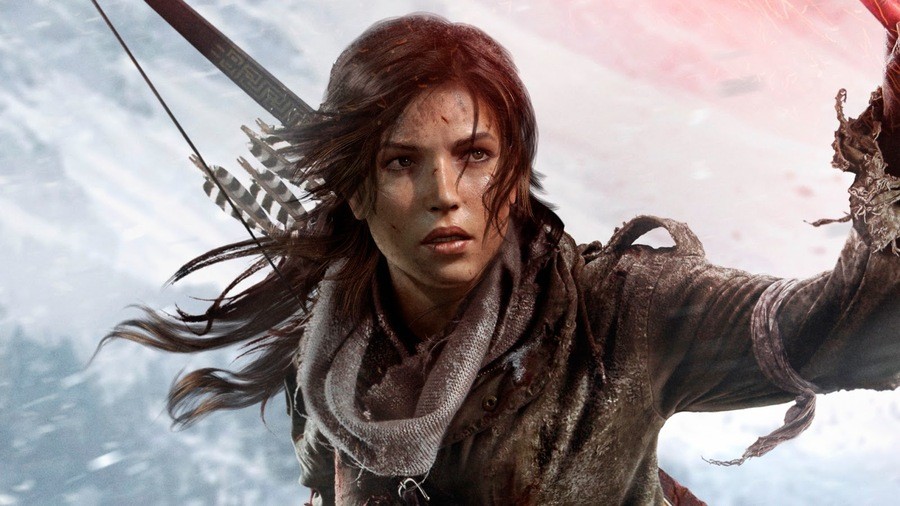
Rise of the Tomb Raider makes its close-range combat and host of weapons comfortable to use at all times on the Seasoned Raider setting. You have health you can apply at any time and can feel confident approaching situations in any way you wish with a decent challenge, but I'd argue it's still a bit too easy. Survivor seems like the perfect challenge to play the game, which keeps resources at just the right scarcity while throwing enemies at you that are appropriately testing - all without making stealth or combat feel limited or unbalanced.
On the other hand, Uncharted 4 discourages using the grappling hook and getting into fistfights on Hard because they demand you to be out in the open, which is challenging for the wrong reasons. It reminds me of Dishonored in a roundabout way with how it encourages stealth, but is far more fun when you can use twice as many powers and weapons if you're a murderous, loud assassin. However, the game punishes you with a bad ending for playing this way, and if you choose to be merciful and stealthy, your arsenal and options are severely limited. It's a confusing, frustrating tension that's generally shared with Uncharted 4.
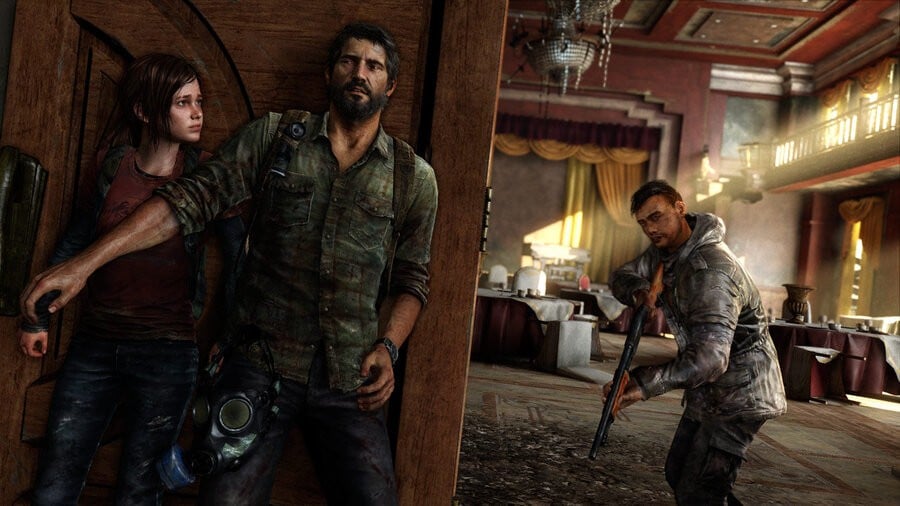
I relish the bigger challenges games can bring on. I adored Alien: Isolation on one of its toughest settings and never hesitate playing the latest first-person shooter at an intense level. I do this because I want to use all of my resources to the best of my ability, but Uncharted 4 raided my naive assumption that game difficulty universally scales in this fashion. The game has a drastic increase in AI intelligence and damage that unexpectedly discourages mechanics and close-up immersion with its jaw-dropping combat. Survival-horror games may limit the use of certain mechanics at tough settings, but this works within the spirit of the genre. That was fine with The Last of Us, but we're talking about the bombastic Uncharted 4 here.
I can't stubbornly stick to a self-imposed rule with difficulty at the expense of not experiencing the full joy a game can provide. Sullying the fun for the challenge here is when I lost track of how the two should be logically hand-in-hand, and if a game poorly or mistakenly makes itself hard by offsetting this balance, I can't be hard on myself by confusing the difference between rewarding difficulties and frustrating ones. That's why, in returning to Uncharted 4, I'll be setting aside my pride to experience all its glory on the Normal difficulty. One last time.
What do you think of Joey's thoughts on Uncharted 4's harder difficulties? Do they limit the game's potential, or realise it? Can you think of any other games that are like this, and how did you feel about them? Where do you draw the line on challenging yourself versus having an experience where you're still enjoying a game to its fullest? Climb down to the comments section below.





Comments 49
It's not that difficult, even on Crushing... except for 2 or 3 areas.
Certainly a cakewalk compared to Brutal mode on the remasters.
I never play on anything other than the default difficulty setting when playing a game the first time. Especially a narrative driven game like Uncharted. Frustration puts you in a bad frame of mind, and that can really hamper how much you enjoy the story. A cutscene isn't as fun if you just spent an hour getting killed over and over again.
Frankly I've never really enjoyed the gunfights in Uncharted games, I've always preferred the exploring and CQC
I've gotten to the point in my life where i enjoy a challenge, and usually start a game on a higher difficulty, but i'm not ashamed to turn it down if i get frustrated. Dying light was a big one for me, as i wanted to enjoy the increased xp and loot on hard, but couldn't stand the way the mechanics would "sometimes" work, and cause several cheap deaths.
Hey everyone! Scribe here. Just want to let you all know I'm around to participate in the discussion. This was a hard topic for me to articulate, so I hope it comes across clearly to you all. Looking forward to what you all have to say!
I love a crazy challenge but I don't enjoy the crushing difficulty on any of the Uncharted games except for the very first one. Even that one is insanely unfair but for some reason I had a lot of fun beating it.
@Anchorsam_9 I thought the firefights were fantastic in Uncharted 4, though I completely agree with @DrJoeystein that the higher difficulties discourage the game from being played the way it's intended. Disappointing.
Also agree with @johncalmac, I tend to avoid high difficulty levels in general these days — I just don't find them fun in the slightest, and only even entertain the idea of playing them for Trophies.
I do enjoy games like Resident Evil 5, however, where you can increase your character and replay with all of your upgrades intact, so it feels like the game scales with you to some degree. That's fun.
But y'know what I hate more than crushing difficulty in UC4? Speed running it for the trophy. That absolutely destroys the enjoyment of the game. Skipping cutscenes, rushing past encounters, using auto-aim, avoiding exploration, etc. It kills the magic of the game.
Played 1 on easy, and even that was too hard at times. Played 2 on normal an dI think that was a little rough at times. Played 3 on normal and don't recall any problems. (That crazed psycho in the diner in Last of Us nearly killed me.) I'm planning on playing this on normal, but I'll drop to easy if need be. It's Uncharted, it's all about the characters and story, not the challenge. I like me some cannon fodder patsies and the occasional difficult boss fight, not bullet sponges.
I imagine it's the same as all the Naughty Dog games in that the harder difficulties just aren't fair. You could nail bad guys with clean head shots on brutal and it barely even rocked them back. I appreciate a challenge but not when it's just frustration for frustration's sake.
Couldn't agree more with this article.
I play games at default difficulty when I first play because, at my skill level, I can normally play it through with some challenge but nothing that stops me dead for long or gets me too frustrated. On UC4, I remember the sections that Joey mentions in his article and thought at the time, I am just never going to get past this on higher difficulty. Which is a shame because I would love to Platinum the game.
I think most ND difficulties are there just to punish the gamers. I'd agree some games are too easy and playing hard is the better way to go BUT difficulty to me should be a curve and force the user to immerse themselves in the game more - better learn the mechanics, better resource manage, use all the assets of the game (and get good at it!).
With UC4, shooting a guy perfectly in the head with a powerful weapon and the guy still takes you out (perfectly)... well, that ain't fun. It is a grind.
I glitched the speed run and crushing difficulty trophies because who's got time for it really! But uncharted 4 is very fair with its difficulty levels as long as you've already finished the game once and have all the bonus options open. But surely if you aren't enjoying the game on hard you should just lower the difficulty 😂
Man, I completely understand this. While I've never actually had any real problem with Uncharted's higher difficulty ( Beat 1&2 on Crushing, 3 on hard, prepping for Crushing run), I'll admit that Uncharted's bombastic cover shooter formula takes a hit since run and you're stuck in cover popping pea shots instead of running and taking out enemies movie style. However, it seems that Uncharted 4's newer stuff isn't worth much on a higher difficulty, and that sucks. I hate it when you get limited on how you play, especially when the design contradicts it or when being able to play in different ways is highlighted, but isn't the case.
While I've yet to play Uncharted 4, judging from your reaction Joey, it looks like they didn't do the difficulty right, and that's a shame.
I haven't played Uncharted 4 on hard, but I actually found Uncharted 3 to be a lot harder and frustrating. A friend of mine who recently played it for the first time agreed with me and we both played it on normal.
I'd say maybe we're both just crap at games, but I found that rest of the Uncharted series fine on the normal difficulty setting.
Well, I don't play on harder difficults a lot, but never had any problem with Crushing on Uncharted, but I do see your point UC4 was less enjoyable for me because of the "forced" stealth sections.
@Napples I couldn't agree more about cheap deaths in Dying Light due to mechanics not functioning
I usually tend to start games on the highest difficulty allowed due to trophies; I learned my lesson with The Last of Us to try and do as few playthroughs as possible. In doing so, I think it's made me a much more competent gamer and I gained a more intimate understanding of how game design and mechanics work in order to proceed. Altough, in retrospect, I'm glad I started on Normal with TLOU of all games.
I found it to be perfectly manageable, but what did you expect when selecting the 'hard' difficulty, especially on a first playthrough? All the fancy maneuvers are all still doable they just require better timing and more precision.
I can definitely see were your coming from but imo the different difficulty settings add to the overall enjoyment of UC4. ND pushed the stealth portions of the game for a reason. This a different Drake that's much more reflective and grounded, that's putting everything on the line one last time. That vision for me is perfectly represented in the harder difficulty settings were stealth is rewarded rather than recklessness, which given the situations our friend finds himself in is understandable.
If a game is to hard just change the difficulty. Pride in such things is silly, heck UC4's standard difficulty is 'moderate', which imo doesn't even sound so bad. For the most part we play games for enjoyment and a game as fantastic as UC4 should be enjoyed.
I only tend to ever play a game once for story based games apart from Mass Effect which have had mutiple play throughs. Only ever play on normal settings. I am more at the story than the difficulty of the game.
I played on the default difficulty like I always do for new games but I was often thinking of certain parts which would be a nightmare on crushing mode. I loved the new stealth parts, though, it's a shame there are so many 'forced' enemy wave shooty bits.
No
I'm waiting for the PS4 Pro to have my first play through of UC4. I always play on normal as I find myself getting too frustrated on the harder settings. I buy the games to enjoy them, not destroy my 4K tv with a dualshock 4 shaped projectile lol
I simply don't have time to play games on higher difficulties. More deaths pad out the game and takes up too much time.
I think it goes for most games that when you are playing on high difficulty you are probably going to be replaying the same bits again and again, and having to play them in a different way to how you would on the standard difficulty setting.
Can't remember uncharted 4 giving me much grief though, I remember wanting to play stealthy at times to avoid a couple of shoot outs but nothing unbearable.
I don't often play games on higher difficulty then the default setting unless I'm going for trophies I just don't get enough gaming time to spend hours on the same part of the game.
I think I agree with @Drjoeystein when a game gets so hard it's monotonous and becomes unfunny, it's a problem no matter how refined the game itself is.
I won't play the Souls series for instance, as @get2sammyb knows, mostly because I know I won't have fun with it.
Default at the start then move to hard or easy depending on the how challenging the game is.
A well designed game will challenge and teach you at all difficulty levels.
I'm playing it for first time right now , well for last 3 weeks . As you can see I don't have that much time so I'm just on standard Normal difficulty. Years ago when I had more time I used to do hard mode and in many instances I agree with Joey that it can spoil a game , I think if I paid £40 for it I'd maybe do hard mode so I felt I got my monies worth but I wait till games are around £25 before buying these days.
@Paranoimia
@johncalmc Exactly. You know, it’s weird that I never pointed that out in the article. Probably because I was ranting enough as it was. But yeah, more narrative-driven experiences are better on lower difficulties and vice-versa. Even then, I still like to play them on hard difficulties because that’s how I like my games. Like I said, it’s how I played Uncharted 2 and 3 and I enjoyed the games on that setting, but for some reason, it didn’t translate to 4 that well.
@Napples Just started Dying Light with a friend! We’re playing on normal because we don’t have much time to play and would rather avoid that frustration, so I’m glad we picked that if what you say is true! For me, it all depends on what’s going on with a particular game. Do I have time to play on hard? Is difficulty a key part of the game, or will it just make it more fun for me personally? Definitely a lot of things to consider.
@get2sammyb Exactly. And yes, that’s a good example of difficulty scaling done right, kind of like in Bloodborne. Though playing the DLC on NG+...oh boy, that’s just too much for me, even as a fan of the Souls series. Like, Ludwig isn’t even challenging. He just feels impossible to approach. I guess I got leveling up to do...ugh.
@sketchturner Speedrunning in general ruins most of the intended fun games are meant to provide, but it’s rewarding in its own right. Just not for players who only want to have a nice experience with U4 and move on!
@rjejr You’ve gotta get a feel for the game and see what it’s like. Usually I have a good inkling of what to expect on some difficulties and will stick with my original one, but sometimes it’s just too much. Arkham Origins on hard? Goodness. I had to restart the game within the first hour because I knew it would be a nightmare later on.
@roe That’s what a lot of the enemies felt like in U4 to a degree that simply wasn’t tolerable on hard. It’s not the good kind of frustration where you know you can improve and get a thrill out of playing all your cards right. U4 is frustrating because it takes a bunch of cards from your deck in combat by giving you little to play with. In the end, it’s just no fun to be challenged that way.
@Rudy_Manchego Exactly! That’s a great example of what I was trying to say about how a game should be challenging; it’s about being able to use all your resources and mechanics skillfully, not being shot down for playing well because the enemies are so dang accurate and hard to take down.
@Bad-MuthaAdebisi Ha, that’s true! But I didn’t come to Uncharted for realism, even with tougher difficulties. And glad you liked that line.
@DrJoeystein
Platinum on all Uncharted's, on PS3, PS4, and Vita! Hardest part of U4 on Crushing for me was the two heavies in the tunnels towards the end. The rest was do-able with some patience.
Brutal on the remasters of the first 3 games is utterly demoralising. I couldn't be bothered persevering with that.
For a really infuriating third-person shooter, try 'Spec Ops: The Line' on FUBAR difficulty. (Did that as well, by the way!)
UC4 lost me when the Plat required beating it on every difficulty level AND speedrun it, while I beat the game on Crushing in the PS3. Mostly for the trophies, it wasnt really enjoyable.
I play Battlefront and UC3 co op with my bro and the highest settings are not challenging, they are just cheap and unfair. My partner can hit me but enemies cant hurt themselves as bullets go through them and still hit me. One hit kills, grenades that wont faze enemies at one foot of distance and kill us both at 3 feet.
@ekreig I do wish more developers made difficulties not just about simple scaling with increased health and damage for AI, but something like Rise of the Tomb Raider. The upcoming Ultimate Survivor difficulty on PS4 is not just tougher enemies and less resources, but you actually have to use supplies to start campfires, which are your checkpoints. It reminds me of saving requiring resources in classic Resident Evil games, and it really added to the stress and “survival” of playing. So cool to see something similar with Rise! I honestly want to play the game again to see what that would be like!
@DerMeister That’s the problem. I felt like I could do this with the older games, even on the hard difficulties, but it just doesn’t work well for the fourth game. I get the emphasis on stealth and less combat scenarios, but when the action comes up, it should at least give me a chance to, say, use the grappling hook instead of dying midair with the AI’s auto-locking powers on hard. But hey, some people think differently about the difficulty, so I’d give it a try if I were you to see if it feels right to you.
@Shaun_p It’s weird how that is, isn’t it? People have different opinions about the difficulties across the series, I suppose.
@DaweezMauiWowee That’s a great way to play. I actually played The Last of Us on Hard the first time, and even though some sections were brutal, I thought it felt so right for that game with the resources being at the right scarcity and enemies being a great challenge but not impossible. Either way, you can’t go wrong with going up through multiple playthroughs. I just tend to play games only once, so if I have one shot, I’m going to see if I can test myself most of the time.
@Fight_Teza_Fight Thanks for the fantastic comment. I like how you analyze the difficulty and gameplay from a narrative standpoint. But yeah, since I consider myself to be a good player with shooters, I expected quick reflexes and smart platforming to get me through the hard setting, but due to the nature of enemies and the layout of levels in U4, they felt like aimbot bullet sponges to me, and whenever I so much as tried to move from cover to cover, I would get pelted unlike in any Uncharted game I’ve played, which is why all the cool maneuvers you can do just felt impractical. But long story short, it wasn’t challenging in the way I thought it would be. However, I do get what you’re saying about the move toward stealth since Drake is trying to be more careful from a story perspective. However, I just found the excessive encouragement of that over action to be a nuisance. I love me some action with Uncharted, and if I can’t act upon it properly on the hard difficulty, there’s something wrong. You could say there’s a conflict between the story’s goal to make Drake more careful and the series’ gameplay being known as explosive and bombastic. You can’t have even more ludonarrative dissonance (ugh, this phrase), or can you? You gotta think about the game design and how that jives with the narrative. But in the end, enjoying something like Uncharted 4 is more important than getting the best challenge. We definitely agree on that.
@ApostateMage I wish there were more combat sections, but when it comes to the enemy wave ones, I could have done with less of those and more scenarios where you’re moving forward and constantly taking out enemies. Those parts where you’re stuck somewhere and have waves...ugh, I have nightmares. Chapter 10.
@viciousarcanum
@ReigningSemtex Yeah, I have a friend who didn’t have as hard of a time as I did on hard, but he did see where I was coming from to a decent degree. It’s weird how, for example, some people will say Hyper Light Drifter’s bosses are horrific, but I thought they were easy as all get out. Some say U4 is fine on hard, others say (like yours truly) it hurts the fun of the experience.
@BLPs See, I LOVE how the Souls series challenges you. Nothing is impossible (well, most of the time). You only have to learn from your own mistakes and lack of knowledge to push through From Software's devious games. But I can see why others may not enjoy it. It can get discouraging, but the thrill of victory...ugh, it's so worth all the death along the way.
@MadAussieBloke Same! And usually I'm good with the harder difficulties I select. Rise of the Tomb Raider was actually too easy on Survivor. DOOM was absolutely perfect for me on Ultra-Violence, and after I got good with the game, Nightmare is even better. Halo is fantastic on Hard, and Call of Duty is a must on Hardened or Veteran. But Uncharted 4? The standard difficulty, please!
@Paranoimia
Those are seriously glorious accomplishments though! Very impressive. And is that Chapter 19 you're referring to? I remember that part. Vividly. And I actually played Spec Ops: The Line! SUCH a good story with incredible themes. I managed to complete it on Suicide Mission, but FUBAR...I'll pass!
@sinalefa Kind of similar to what I did with the Assassin's Creed series. I wanted to get all Platinum after I did AC2, but when Brotherhood came around and I had to get multiplayer trophies to obtain it? That was it for me. A short-lived dream, that was!
@DrJoeystein I normally don't play on harder difficulties unless: A. Trophies or B. I'm good enough at the game that the default difficulty is too easy. Knowing me, when I do get it I'll likely try to platinum it, as I've platinumed the first two games and am close to completing the 3rd. A hard mode run will definitely be in the cards. Maybe I'll have better luck than you did.
@DrJoeystein It's a while now since I finished the game, so I can't remember the exact chapter. 19 sounds about right, though. It's a narrow passage with 2 heavies, and you don't have much ammo. Well, I didn't. It took me a lot of retries.
I find I just really don't have the time or desire anymore to play games on their highest difficulty. Having never played any of the series I picked up the collection. I'm part way through 2 and have no desire to move the difficulty off the default. Trophies aren't worth frequent rage quits, but that's just my situation. I've also come to the shocking realization that as someone who has been an avid gamer for 30 years I suck at shooters.
Um, I like trophies and all, but not enough to go out of my normal gaming routine for them. Whatever I get, I get. Aside from Persona 4: Dancing All Night, every trophy I have was naturally acquired without trying to obtain it. And even that game I only platinum'd it cause I was 5 trophies away anyways and never got a Plat before.
Default difficulty all the way. I enjoy hard games, but only those naturally demanding like Dark Souls, Monster Hunter or Donkey Kong Country.
@Paranoimia I had the same experience. Played through on Crushing, only 2 or 3 difficult areas (and that was mostly poor ammo planning!), the rest was a cake walk. I dont understand how someone can think Uncharted 4 is a difficult game especially if they are playing on normal.
Great article and cant agree more. I've become a true master in the art of hiding in a piece of cover and firing out the odd shot now and again - but its no fun so I ALWAYS play on Normal!
Git gud...
i find the first game to be the hardest actually - it's the only i haven't beaten on crushing. but i have played them all on normal for the first playthrough - i want to enjoy the story/characters the first time without getting bogged down with progress. plus it helps get used to the mechanics to take on the higher difficulties.
UC4's harder difficulties didn't seem that much different to 2 and 3 to me - some of those had open areas (not as big as UC4 obviously) that getting caught in a firefight led to instant death. the section in syria in UC2 springs to mind - on brutal, i pretty much stealthed that whole section. in general, the stealth in UC4 works much better than the other games - and the trophy for getting through all of chapter 13 and 14 without being seen is a tense game of cat and mouse. in some respects, i wish stealth had been a viable option in the original game for certain sections.
and if you thought you could just breeze through UC4 on hard as some kind of rambo indiana jones gun-toting rope swinging adventurer, that is entirely unrealistic imo. the game requires a lot more use of the environment than the previous games where you could just hunker down behind something and take pot-shots at enemies that rushed from one direction.
@DrJoeystein Man I know guys who swear by the Souls series. I want to try it, but I don't feel it's a concept or challenge for me. It's really hard to explain. It seems to put me off just from a game design stand point alone.
The game being mostly dark colours as well probably doesn't help. I wouldn't be able to see anything.
@johncalmc
Same here. If it's a game that I know will be very long and very story-driven, I'll usually set it to Easy, at least until I get the hang of the mechanics. This stigma about playing on default or easy difficulties is ridiculous; the purpose of video games is to relax and enjoy your leisure time, not out-bro everybody else.
There isn't much joy in Uncharted's combat to start with, no weapon customisation made it a very average affair anyway, unless it dramaticaly differs from U1,2 and 3 it's just a simple combat system and childishly easy on anything under Hard difficulty. Fun game's though as long as you know what you are getting beforehand. Definately one and done game's with no depth cept the story behind it all.
Certainly agree with the article. Playing through on crushing there are three or four areas with massive spikes in difficulty / forced stealth - even as early as the first 30s of the prison break, where stealth is pretty much hopeless and you're virtually a one-hit kill; having to restart countless times in a game of this length isn't exactly fun to me.
Great article. If your difficulty scaling is basically just, "Now the enemies have more health and do more damage," you're doing it wrong. Difficulties should be made to compliment your mechanics--Which is why I've always said there shouldn't be multiple difficulties in games. If you want your game to be hard, create your mechanics around a brutal difficulty. If you want it to be cinematic and easier, design your mechanics around that.
Just my opinion, anyhow.
If difficulty levels of a game just increase health of an enemy I refuse to play anything above normal.
Totally agree, played it release week on "crushing" and hated myself (and the game) for it. Totally kills the casual nature of the game's tone and makes shooting from ropes and charging totally unrealistic in terms of gameplay. Disappointing, because "Grounded" in TLoU is probably my favorite example of difficulty done right.
@Paranoimia Agreed 110%.
Looking back, the author of this article should kinda be embarrassed. This game was the easiest of the 4 Uncharted games, imho.
And he makes such a fuss about it.
The author of this article should be embarrassed.
An interesting read this was before everyone played it without a problem. The easiest game of the franchise imho. With an amazingly addictive multi-player, btw.
Show Comments
Leave A Comment
Hold on there, you need to login to post a comment...